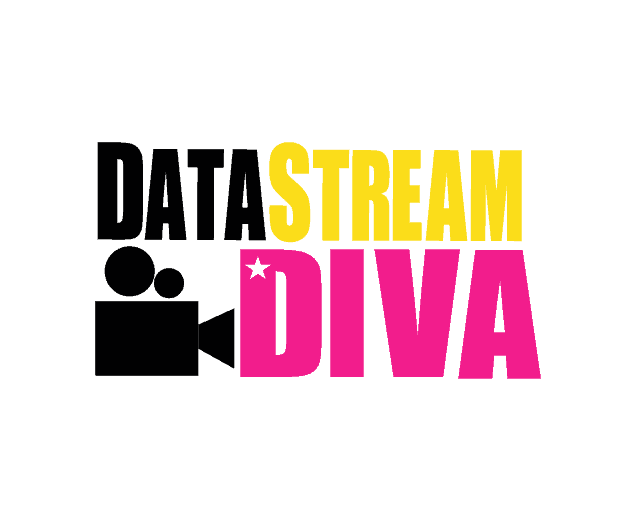- Beyond the Aquila Rift Explained: What The Ending Really Means - April 4, 2022
- Best Movies Like Paper Towns: Our Top Recommendations - April 4, 2022
- Best Movies Like Moana: Must-See for Disney Fans - March 4, 2022
It’s true that 2016’s Collateral Beauty was not the most beloved film by the public, nor by the critics. But many wonder what the ending meant once they left the movie theatre. And they are right to ask. Because the ending carries a powerful message, drawn by a cast of wonderful actors in a moving and intelligent notion. Therefore, here’s Collateral Beauty’s ending explained in full detail!
Many said that the reason behind the production of Collateral Beauty in 2016 had to do with the presidential elections of the United States. Where an individual doubt his mental health because of the influence of others. Warner Bros. saw this as an opportunity to get people coming out of the movies to really ask about their own mental health.
David Frankel‘s film was heavily criticized, despite the powerful cast including Will Smith, Edward Norton, Kate Winslet, Helen Mirren, Naomie Harris, Jacob Latimore, Michael Peña, and Keira Knightley. The critic Alan Scherstuhl went even so far as saying:
“You’ll still struggle to accept that what you saw on that screen actually played in theatres, was funded and approved by distributors, took a month or so of the lives of those extraordinary actors.”
The strange thing about the critics’ bashing is that the film was Allan Loeb‘s passion project who at his young age already has films like 21 or The Only Living Boy in New York under his belt. To that, add the direction of Oscar-winner David Frankel, responsible for such successes as Band of Brothers or The Devil Wears Prada. Hence, let’s honor this picture and do everything to give you Collateral Beauty’s ending explained – exactly how this powerful team deserves it.
What is Collateral Beauty? What Does Collateral Beauty Mean?
The meaning of collateral beauty is that despite how dark or difficult live gets, there is still something beautiful happening if you look closely. A basic interpretation of this is the adage “there is a silver lining to everything“.
Collateral Beauty Meaning: The Setting
What’s the reason for so many stories?
Will Smith plays the main character, Howard, a man imprisoned in pain. “The general idea of hidden beauty came to all of us: no matter how difficult your circumstances are, something special is always happening in front of you. You just have to look for it to see it.” The actor, who cites the classic It’s a Wonderful Life as one of his favorite themes and inspiration for the film, adds:
“Many of the actors that David contacted said yes from the start. It was one of those occasions when it comes together for all of us; we wanted to help bring this story to the big screen.”
For Loeb, it began as the seed of an idea that grew in his imagination until he could no longer keep it for himself:
“It got into my head, little by little, over a long period of time, while I was writing other films and working on new things. It was a little story in my imagination that kept bothering me, about a man who writes letters to abstract entities like time, love and death. Why does he do that?”
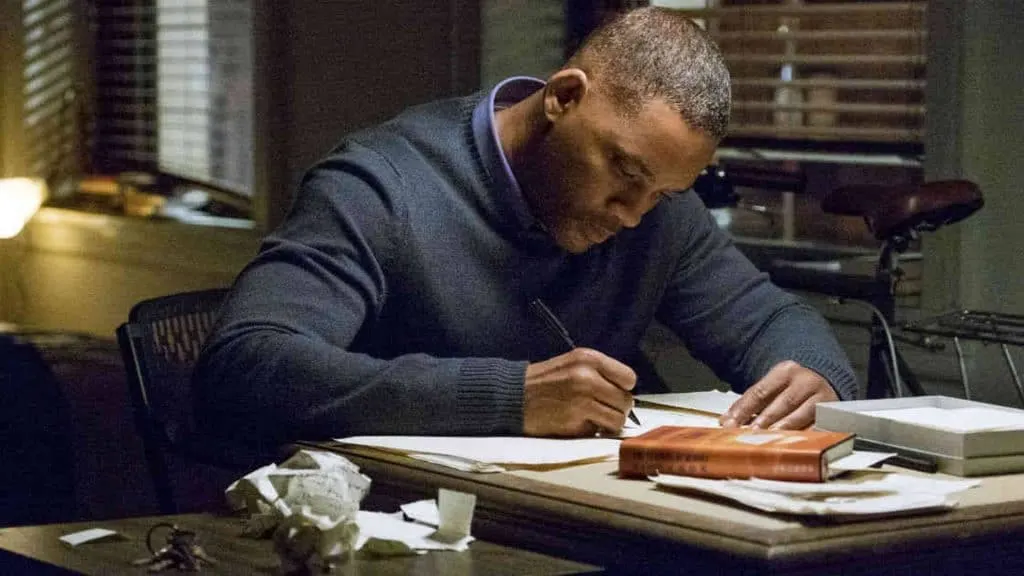
Howard was a successful, energetic advertising executive, owner of his own company, for whom those words once represented powerful marketing tools.
Understanding Howard’s Daughter
However, when his six-year-old daughter dies of a terrible illness while Howard is emotionally adrift, these concepts take on a broader meaning. His only communication, now that he increasingly shuns human contact, are the angry and accusing letters he writes to Love, Time and Death. Director David Frankel explained:
“He is assailed by immense philosophical doubts and seeks answers in the universe. As if he were a modern King Lear, we could say that he shouts to the gods”.
Howard’s friends are also his closest companions and associates: Whit, played by Edward Norton; Claire, led by Kate Winslet, and Simon, by Michael Peña. Although his concern is sincere, his plan also has a practical side, since Howard’s absence from daily tasks has brought the company to the brink of insolvency and, in order to save it, they have to make a sale.
Thus, one day, while sitting on his usual dog park bench, a woman dressed in blue, confident, sits next to him. She carries a letter that Howard has recently written to Death. She, who has caught him totally unprepared, introduces herself as the addressee of that letter. When Howard backs down, he reminds her that people are continually looking to the universe for answers, but not many are lucky enough to receive a direct response.
And so it all begins. Read on to understand the collateral beauty definition, and discover what does collateral beauty mean in the end.
What would you say to Love, Time, and Death
The three most essential factors to understand it all
Allan Loeb explained, as for the basic premise of the film:
“The script was a Trojan horse of a speech about what I think are the three most important elements of our existence. I wanted to talk about it not from a chorus point of view, but from the mouths of Love, Time and Death, literally”.
To this end, he elaborated the characters whose main objective was to take the determining elements of these concepts and let them challenge, with courage and face to face, Howard’s attitude and assumptions regarding their role in the world and what they mean to him.
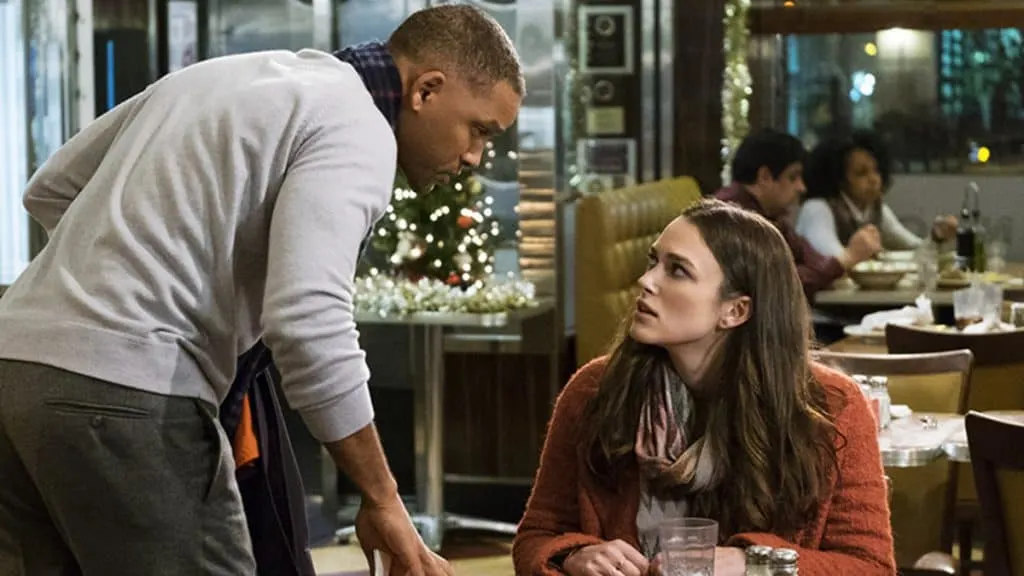
Howard’s most recent letter to Love simply said “Goodbye,” and now Keira Knightley‘s character, Amy, has to make him realize that giving up love is not an option. In fact, it’s just the opposite: love is the most important thing right now. Knightley explained:
“She empathizes a lot with Howard’s pain, and that empathy is a form of love; it speaks to him in an emotional way that he understands. However, what she wants to do is make him understand that in love not everything is beautiful; that inconceivable pain you feel when something is taken away from you is also part of it, but it still doesn’t diminish or disappear.”
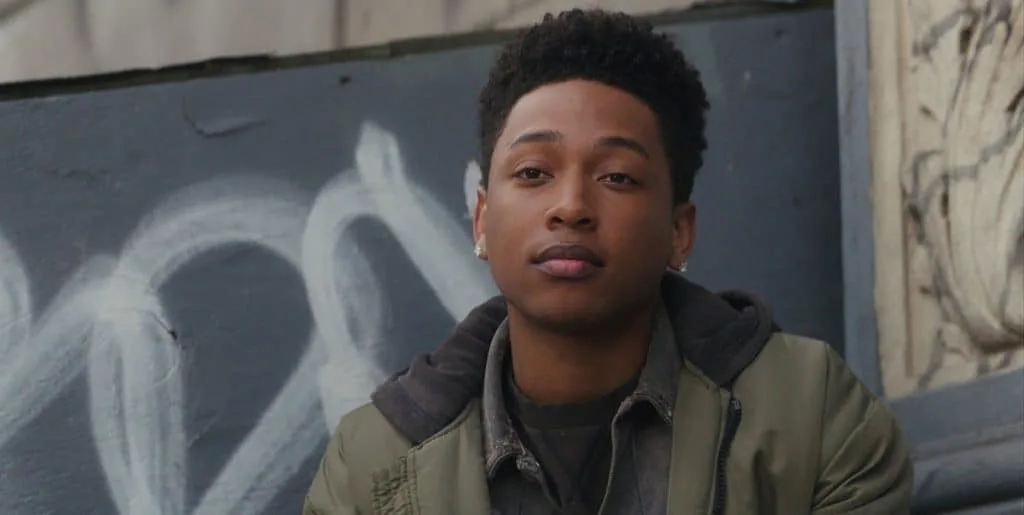
In the meantime, Howard feels hounded by what he thinks can only be Time, represented by Jacob Latimore as a young street kid named Raffi who appears in the most unexpected places, such as his office, or accompanying him on his skateboard as he holds on to his bicycle seat.
In his letters, Howard has been especially harsh with time and receives a response in kind, as he is thrown into similar accusations. Latimore recalls:
“Howard writes to Time what any parent would tell it if he could. You are dead, petrified; you kill beauty, you ruin everything. To sum up: he only wants to be with his daughter and, unfortunately, he cannot do it anymore. I attract his attention and communicate with him by telling him he is wrong. Time is a gift and he’s wasting it by doing nothing and going through everything. There are more things worth living for. Our conversations are frustrating, but I have to believe that they help him in a way that he does not understand until later.”
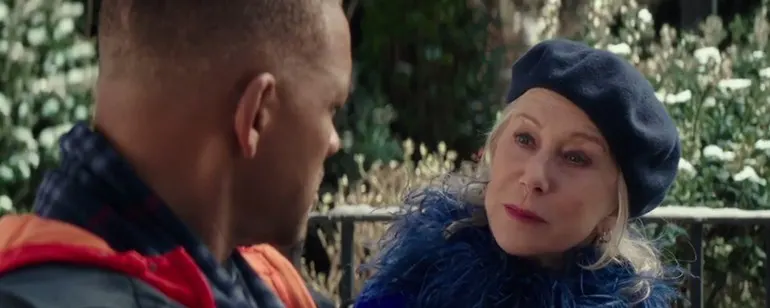
However, it may be that Howard’s conversations with the woman who speaks for Death are the ones that disturb him the most; in large part, perhaps, because she’s not at all what he had imagined her to be. This was a voluntary decision by the screenwriter who later personalized Helen Mirren with deep and unsentimental sincerity, wit and glow in her eye. The actress explains:
“Howard challenges Death, he argues, he gets angry. He is certainly a man who is experiencing deep and endless pain. He has lost his place in the world and controls his behavior because of the terrible trauma he has suffered.
When you’re ready to talk about it: Madeline
The answer to our questions about the end
Although questions and emotions are being stirred up, there is a personal touchstone for Howard. Somewhere in the city, a group of people, different in everything except the pain they share, are gathering to talk about their deceased loved ones, to tear up photos and offer each other comfort and companionship.
Many nights, Howard comes to the meeting place. He looks out the window from a distance and observes the gentle movements and smiles of the woman leading the group.
Sometimes she looks at him… and he turns around.

Madeline, played by Naomie Harris, is a grief therapist who walks the same path each day with the people in her support group. Like them and Howard, she lost her daughter Olivia (Alyssa Cheatham) due to cancer. However, unlike Howard and in Harris’s words:
“I think that shortly after it happened, Madeline started looking for ways to cope and she immediately started going to these groups. What I admire about Madeline is her strength. She’s full of love and so brave that she’s willing to face her loss that way, she’s determined to learn and grow, while Howard runs away from it. He can’t cope. He can’t even begin to face it.”
Madeline’s recovery comes through her work. “Despite her pain and loss, she has found a way to make sense of life by helping others in their struggle. That was something I really empathized with,” Harris adds. So seeing that person lurking outside the window makes her want to get closer to him.
One of Madeline’s gifts is her patience. She hopes that one day, when he’s ready, Howard will cross the chasm and enter the room. As soon as he does so, everything begins to make sense to the viewer.
The Big Reveal: Collateral Beauty Definition
First of all, the true meaning about Collateral Beauty is finding a way back to life and love after an indescribable loss, and about those unexpected moments of hope, meaning and connection. The proverbial positives, which light the way even in the darkest moments.
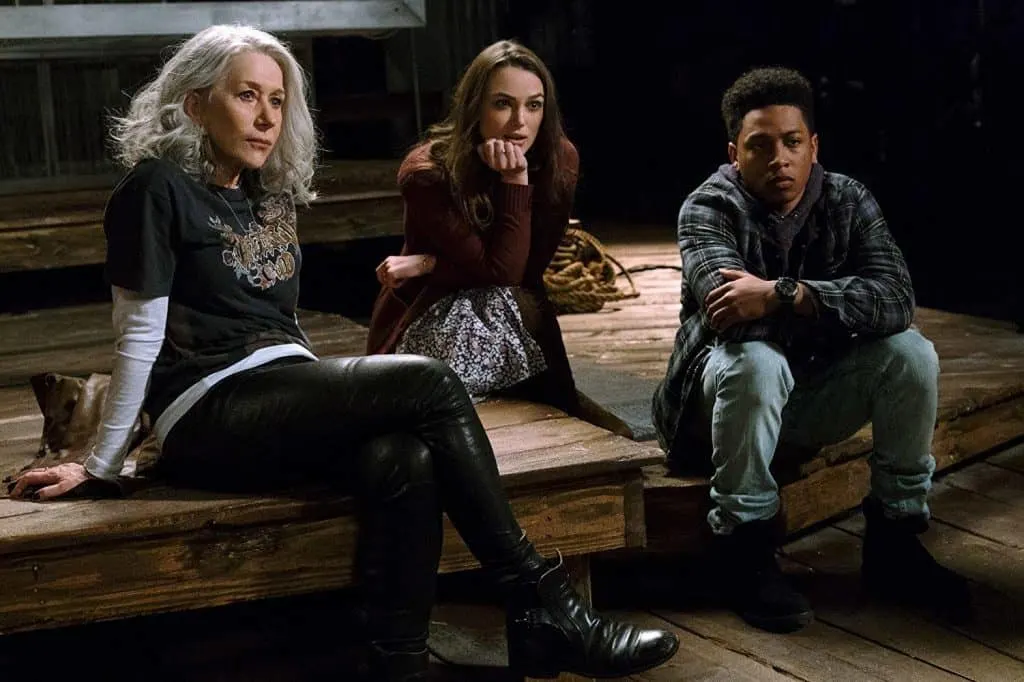
Although the last minutes of the movie unwrap the great mystery, we have to go as far back as to the troubled agency, to understand the true meaning behind Love, Time, and Death. Howard’s three friends actually hire three actors to help Howard recover, but when they fail, they hire them again to help Howard lose his temper while a detective records him.
When they show Howard the videos at the reunion, he tells them that they did the right thing, but he also gives each of his friend’s tips on how to finish solving their problems. Problems that we’ve come to know as each one of them interacts with each ghost-actor:
Whit Yardsham (Edward Norton) was unfaithful in his marriage and that is why his daughter doesn’t even want to see him. Amy Moore (Keira Knightley), the ghost who embodies love, will bring out the best in him so he can finally get his daughter to forgive him.
Claire (Kate Winslet) dedicated her life to work and feels that she’s late in starting a family. Raffi (Jacob Latimore), the ghost of time, tells her that children do not have to leave her, she can care for and love others even if they are not her blood.
Simon (Michael Peña) is terminally ill. Brigitte (Helen Mirren), the ghost of death, convinces him to tell his family so he can say goodbye and die well.
Madeleine (Naomie Harris), the therapist for parents who have lost a child, managed to get Howard into therapy and have dinner with her, but she can’t get him to open up completely. They talk about how both of them, even though they are divorced because of the loss, still love their partners.
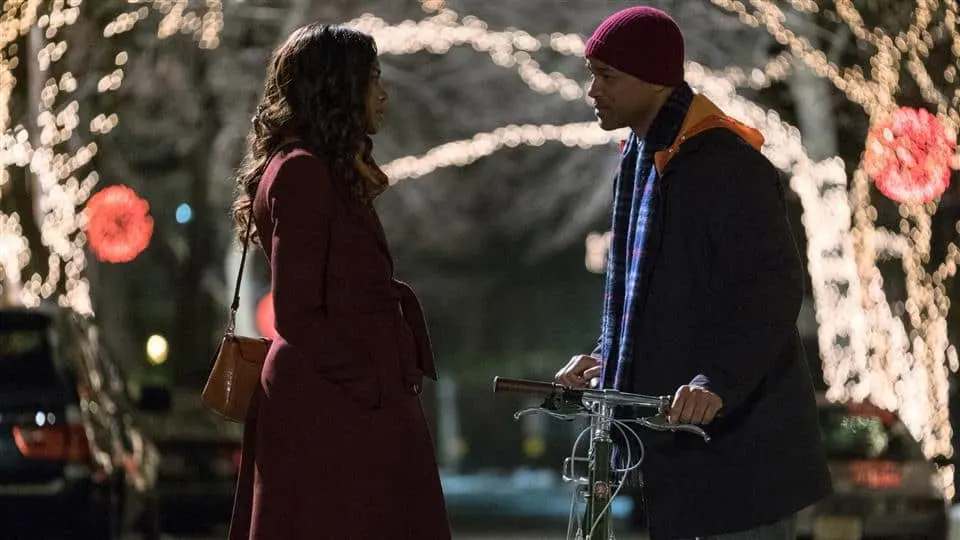
Madeleine shows him a letter her ex gave her during the divorce, saying she wishes they were a couple of strangers again. Telling him that when she lost her daughter a woman told her to look at the “hidden beauty“, the woman was none other than Brigitte (Helen Mirren). As you now know, she and the other two were never really actors, they were ghosts.
Howard opens up and finally says his daughter’s name, Madeleine is actually his wife but following Howard’s wish to divorce treated each other as strangers.
So, in the last scene, Madeleine and Howard walk through Central Park holding hands again. They pass under a bridge where the three ghosts stand; Love, Time and Death. Madeleine turns for a brief moment and looks at them even though we know they don’t exist. This concludes that both made their peace – leaving their ghosts behind. https://www.youtube.com/watch?v=JahogEW8PkE
Collateral Beauty Plot Spoiler FAQs
Answer: The film is currently available on Hulu.
Answer: The premise is imaginative and intriguing, but while the film might be emotionally real, Collateral Beauty isn’t based on a true story.
Answer: The term collateral refers to an asset that a lender accepts as security for a loan. The collateral acts as a form of protection for the lender. That is, if the borrower defaults on their loan payments, the lender can seize the collateral and sell it to recoup some or all of its losses.
Answer: Madeline is Howard’s wife and the mother of his deceased daughter; in the wake of that tragedy, he wrote her a note saying that it would be better if they were “strangers” so they could meet all over again without the pervading sense of loss that’s between them.
Answer: Set in New York during the holiday season, the film takes advantage of the city’s incredible architecture, historic landmarks, and even some new hot spots. Smith’s character, Howard, works at a fictional advertising firm of Yardsham Inlet.
Question: Is Collateral Beauty based on a book?
Answer: Collateral Beauty is not based on a book – It is actually an original screenplay by Allan Loeb
Collateral Beauty Explained: Brief Plot Summary
Discovering those moments caused by a tragic event is a deeply personal emotional and spiritual journey for each person, although we all share it. Collateral Beauty, nestled in the warm, energetic, and sometimes bittersweet New York holiday season, tells the comforting story of one man’s progress amidst an environment of loss and what he eventually finds, always with heart, openness, a touch of humor, and the recognition that there will always be good things beyond our understanding.
And although in the end, the three elements were Howard’s ghosts, what the film wanted to explain to us is the reflection that each one makes in such a delicate moment. Because deep down it’s a universal language for the whole world, in which love, time, and death are involved – thus defining the state of mourning we go through, whether it’s a loss, a divorce, or a break-up.
Perhaps some people left the cinema a little distrustful because of the appearance that the film transmits at certain moments to draw out some crocodile tears. The truth is that it goes beyond that. It deals deeply with that pivotal moment, wanting to show us how one faces it and releasing a taboo feeling, which many of us keep inside.
